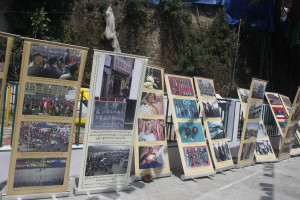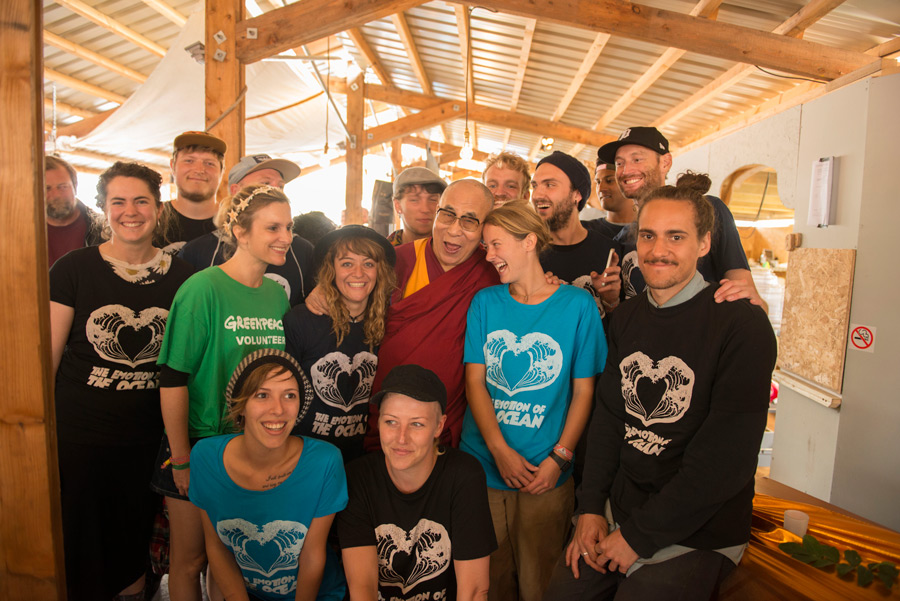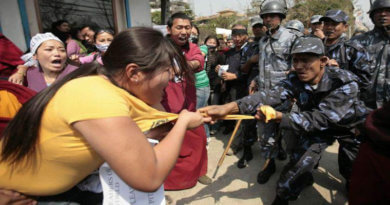China resorts to “Torture with Tibetan characteristics”: TCHRD
DHARAMSALA, JUN 27: Forcing Tibetan political prisoners to vilify their spiritual leader and root lamas in prison can be termed as “Torture with Tibetan characteristics”, said Tibetan Centre for Human Rights and Democracy(TCHRD), the Dharamsala-based Tibetan rights group at an event held on Jun 26 to observe the United Nations International Day in Support of Victims of Torture.
Ms Tsering Tsomo, Executive Director of TCHRD, said torture is not just physical which is visible to the eye but leaves a huge impact on the victims mentally too.
“Forcing Tibetans, especially monks and nuns, to vilify their spiritual leader and root lamas leave a huge impact on the victims. It’s a Tibetan specific torture and could be termed as ‘Torture with Tibetan characteristics’,” said Ms Tsomo.

“Many have been rendered mentally unstable and a number of Tibetan political prisoners have died due to torture in prison,” she further added.
According to TCHRD, at least 18 Tibetans have died as a direct result of torture since 2008.
Ms Tsomo also highlighted the Chinese use of medical torture on Tibetans in prison.
“Under the pretext of medical treatment, Tibetan political prisoners are secretly given a slow death through various kinds of injections which do not leave visible physical marks of torture,” she said.
She further said that impunity given by governments to people responsible for torture is one of the biggest obstacles in completely eradicating torture in this world.
“People responsible for acts of torture should not be given impunity and need to be brought to court, and campaigns need to be carried out to emphasize it,” she said.
The event jointly organized by TCHRD and Students for a Free Tibet (SFT), a Tibetan grass root organization known for its innovative and impactful activism for the cause of Tibet included screening of a documentary on torture entitled “Through Flesh and Bones” followed by a panel discussion.
The 30-minute documentary that took a year to complete contained interviews conducted with four former Tibetan political prisoners, Tibetan spiritual leader His Holiness the Dali lama and valuable insights from Meenakshi Ganguly, South Asia Director of Human Rights Watch and Dr Honey Oberoi, psychologist and author of “Lives in Exile”.
The documentary was made by Abishek Madhukar, a freelance journalist based in Dharamsala.
The panel discussion opened with Gonpo Trinley, a former Tibetan political prisoner who was arrested in 2008 during the pan Tibetan uprising and endured torture in prison recalling his experience.
“I couldn’t even stand on my feet after all that torture that included being severely beaten and electrocuted. All the other political prisoners I had the opportunity to talk with had undergone similar torture. There are many instances of death due to torture in prison. I remember an 18-yr-old Tibetan boy who died due to severe beatings and torture in prison. He was severely beaten from around 9 in the morning till evening. He died 5 minutes after he was returned to his cell,” Gonpo Trinley said, emphasizing unknown deaths of Tibetan political prisoners in prison.
Tenzin Nyingjey, senior researcher at TCHRD spoke on the need for international community to actively support the aims and objectives of Tibetan victims of torture rather than merely showing gestures of sympathy.
“Why Tibetans suffer torture and whether the international community supports the aims and aspirations of the Tibetan victims of torture need to be asked,” he said.

When asked by this reporter whether it makes sense for him to opt for a more radical and violent approach considering the fact that the condition in Tibet has deteriorated since Xi Jinping came to power as well as the loss of Tibetan lives through self-immolation, the number of which keeps on increasing without much concrete impact on the issue of Tibet or in the minds of the Chinese leaders, Gonpo Trinley said:
“I personally think I would still follow a non-violent approach to our struggle. It is true that some countries just pretend to support the Tibetan cause while pursuing their national interest by maintaining good relationship with China. But I think it makes sense to stick to a non-violent approach as we lack the infrastructure necessary for a violent struggle and more importantly, out of the 7 billion people in this world, most of them love peace and support world peace at large. I think our struggle is based on truth and it will prevail and this is an opinion shared by many other Tibetan political prisoners with whom I had the opportunity to talk.”
Earlier in the day, Gu-Chu-Sum, a former Tibetan political prisoners’ organization also marked the day with a photo exhibition at the TCV Day School in Mcleod Ganj, Dharamsala.





